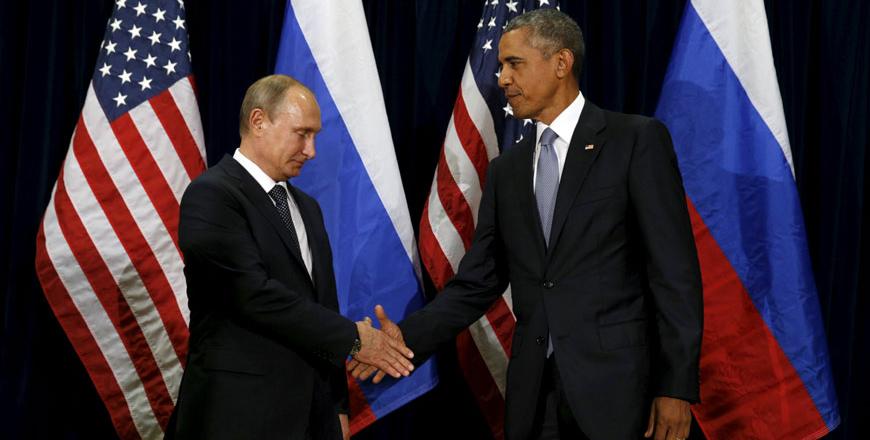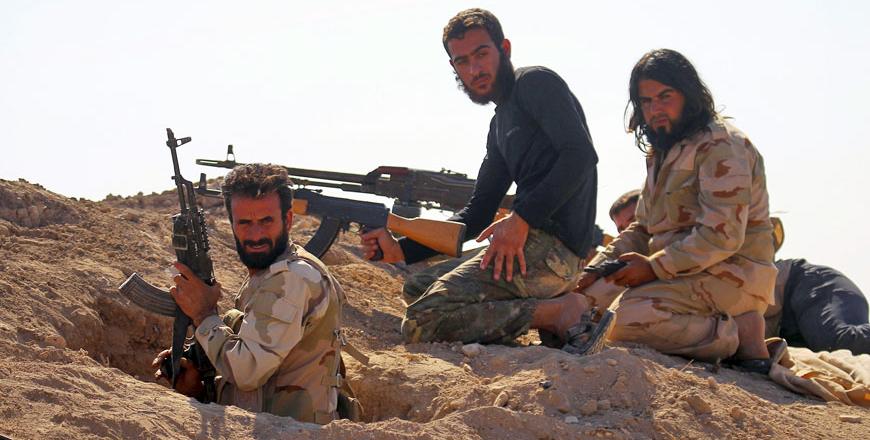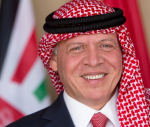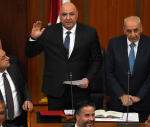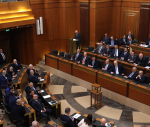You are here
Obama, Putin spar over Syria in duelling UN speeches
By AFP - Sep 29,2015 - Last updated at Sep 29,2015
UNITED NATIONS, United States — Russian President Vladimir Putin and his US counterpart Barack Obama sparred over the crisis in Syria in duelling UN speeches on Monday, each accusing the other of fuelling the carnage.
The Russian urged UN General Assembly members to unite to fight the Daesh terror group and said it would be a disastrous error not to support Syria's sitting president, Bashar Al Assad.
"We must address the problems that we are all facing and create a broad anti-terror coalition," Putin said in his address, his first to the world body in a decade.
It is, he argued, an "enormous mistake to not cooperate with the Syrian group which is fighting the terrorists face-to-face".
Obama said Washington was ready to work with Russia and even Iran against Daesh militants, but took a swipe at them for supporting Assad, whom he dubbed a child-killing tyrant.
Not to be outdone, the Russian leader blamed the rise of violent extremism on the United States' military interventions in Iraq and Libya, which he said unleashed chaos in the Middle East.
Obama took the podium at the UN General Assembly ahead of Putin and hours before the pair were to hold their first meeting in over two years.
The US president extended a cautious hand to his traditional foes, suggesting they work together to end the bloodshed in Syria.
"The United States is prepared to work with any nation, including Russia and Iran, to resolve the conflict," he said.
'Innocent children'
But the American leader made clear his opposition to Moscow and Tehran's current policy of arming and supporting Assad.
Rather than a bulwark against jihadist extremism, Obama argued, Assad drives Syrians into the arms of such groups by such acts as dropping "barrel bombs to massacre innocent children".
Putin rejected this view, arguing that Daesh sprang out of the chaos left behind after US-backed forces ousted Saddam Hussein from Iraq and Muammar Qadhafi of Libya.
After the end of the Cold War, Putin argued, the West emerged as a new "centre of domination" of the world and arrogantly took it upon itself to resolve conflicts through force.
This power led to the emergence of areas of anarchy in the Middle East, with extremists and terrorists.
"Tens of thousands of militants are fighting under the banners of the so-called Islamic State [Daesh], and their ranks include former Iraqi servicemen," he said.
Putin said the current US policy of training and arming local rebel groups to fight jihadists was only adding fuel to the fire.
“The ranks of the radicals have been joined by the moderate Syrian opposition,” he said. “First, they are armed and trained, and then they defect to the so-called Daesh.”
Washington insists Assad must leave power before any settlement to the conflict, while European powers seem to be softening their stance, signalling he could stay on in an interim role.
In his address, Obama did not specifically address Assad’s fate, a key bone of contention in efforts to re-launch a bid to end a war that has left more than 240,000 dead since 2011.
But he declared that there could be no return to the pre-war status quo, when Assad held sway.
Moscow has put Washington on the back foot by dispatching troops and aircraft to the war-torn country and pushing reluctant world leaders to admit that Assad could cling to power.
On the ground, Russia has started putting the pieces together by agreeing with Iraq, Syria and Iran that their officers will work together in Baghdad to share intelligence on Daesh.
Assad or Daesh?
Western powers say Assad’s military is responsible for the vast majority of deaths in the war and maintain his brutal rule has allowed Daesh’s extremist views to flourish.
“When a dictator slaughters tens of thousands of his own people, that is not just a matter of one nation’s internal affairs,” Obama insisted.
“It breeds human suffering on an order of magnitude that affects us all.”
But with their response to Daesh in disarray, Western powers have allowed Syrian president’s backers present him as the only practical option for a return to stability.
“If we are to succeed in fighting terrorism, the government in Damascus cannot be weakened. It must be able to carry on the fight,” Iran’s President Hassan Rouhani said.
“If the Syrian government is taken out of the equation, the terrorists will enter Damascus” and “the whole country will become controlled territory, a safe haven for terrorists.”
Syria’s northern neighbour Turkey has been one of Assad’s most implacable critics, but Prime Minister Ahmet Davutoglu told reporters it was ready to work with Russia to find a settlement.
“What we need to do is having solidarity with all the countries, including Russia, to make a transition in Syria a peaceful transition and in the new Syria, there should not be any place for Assad or Daesh,” he said.
Related Articles
NEW YORK — Russia's President Vladimir Putin launched a new coalition to battle the Daesh terror group in Syria on Sunday, as he prepared to
UNITED NATIONS — Russia and the United States agreed on Monday to look for a diplomatic end to the Syrian civil war but clashed over the cen
SOCHI, Russia/AMMAN — Russian war planes pounded Syrian rebels unaffiliated with Daesh on Sunday, insurgents said, helping Moscow's ally Bas


